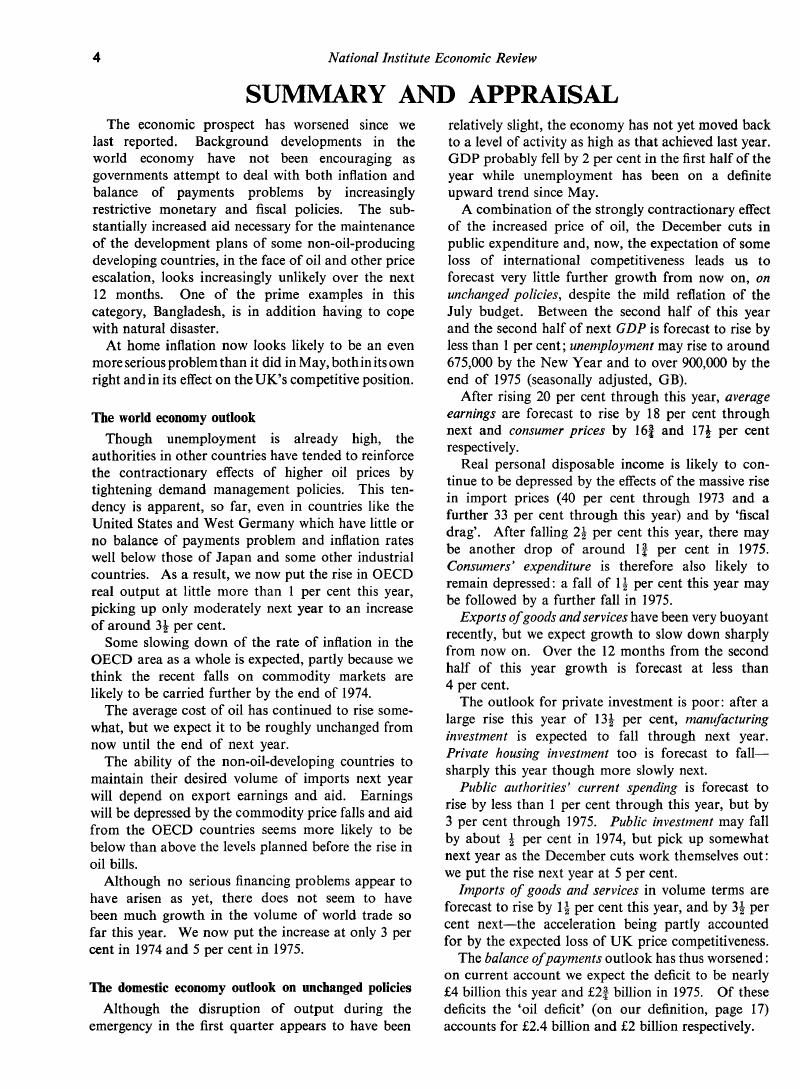No CrossRef data available.
Article contents
Summary and Appraisal
Published online by Cambridge University Press: 26 March 2020
Abstract

- Type
- Articles
- Information
- Copyright
- Copyright © 1974 National Institute of Economic and Social Research
References
page 5 note (1) Another view, recently put forward by Professor Lord Kahn and Mr Posner in their evidence to the Expenditure Committee, is that higher unemployment will cause trade unions to press for even higher increases in money wages in an attempt to counter the emergence of unemployment.
page 5 note (2) The reaction to this logical point of the Expenditure Committee of the House of Commons (Ninth Report, 30 July 1974) is interesting. The Committee recognises that the use of monetary policy to control prices could lead to bank ruptcies and unemployment, both of which they reject. At the same time they tell economists to stop talking about incomes policy. It is as though the economists were to explain to the Committee that coins have two sides and that the Committee should respond by telling them not to say such horrid things but to go away and design coins with one side only.
page 5 note (3) Frank Blackaby, ‘Incomes policies and inflation’, National Institute Economic Review, No. 58, November 1971, page 14.


